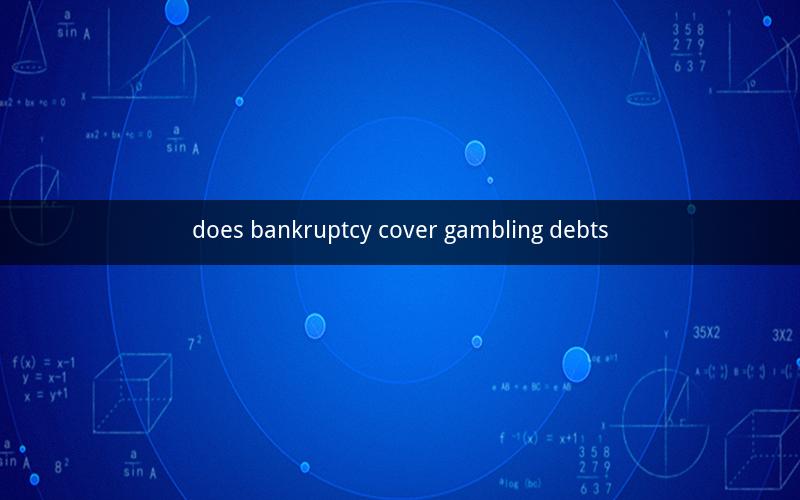
Table of Contents
1. Understanding Bankruptcy
2. Types of Bankruptcy
3. How Bankruptcy Works
4. Bankruptcy Exemptions
5. Bankruptcy and Gambling Debts
6. The Legal Perspective on Gambling Debts
7. Bankruptcy's Impact on Credit Score
8. The Process of Discharging Gambling Debts
9. Alternatives to Bankruptcy
10. Conclusion
1. Understanding Bankruptcy
Bankruptcy is a legal process that provides individuals and businesses with a fresh start by eliminating or restructuring their debts. It is a complex system that varies by country and jurisdiction. In this article, we will focus on bankruptcy in the United States, where there are two primary types: Chapter 7 and Chapter 13.
2. Types of Bankruptcy
Chapter 7 Bankruptcy
Chapter 7 bankruptcy is a liquidation proceeding where the debtor's non-exempt assets are sold to pay off creditors. The debtor's remaining debts are then discharged, meaning they are no longer legally required to repay them.
Chapter 13 Bankruptcy
Chapter 13 bankruptcy is a reorganization plan where the debtor proposes a repayment plan to creditors. The plan must be approved by the bankruptcy court and is usually based on the debtor's income and expenses. Once the plan is completed, any remaining debts are discharged.
3. How Bankruptcy Works
The bankruptcy process begins with the debtor filing a petition with the bankruptcy court. The petition includes a list of the debtor's assets, liabilities, and monthly income. The debtor must also complete credit counseling and financial management courses.
Once the petition is filed, an automatic stay is imposed, which prevents creditors from pursuing collection activities. The debtor's assets are then evaluated, and a trustee is appointed to oversee the bankruptcy process.
4. Bankruptcy Exemptions
Bankruptcy exemptions are laws that allow debtors to protect certain assets from liquidation. Exemptions vary by state and can include property, income, and other assets. For example, a debtor may be able to exempt a certain amount of equity in their home or a specified amount of retirement accounts.
5. Bankruptcy and Gambling Debts
One of the most common questions regarding bankruptcy is whether gambling debts are covered. The answer is not straightforward, as it depends on several factors.
6. The Legal Perspective on Gambling Debts
Gambling debts are considered unsecured debts, meaning they are not backed by collateral. In general, unsecured debts are dischargeable in bankruptcy, including credit card debt, medical bills, and personal loans.
However, some jurisdictions have specific laws that treat gambling debts differently. In some cases, gambling debts may be non-dischargeable, meaning the debtor is still legally obligated to repay them even after bankruptcy.
7. Bankruptcy's Impact on Credit Score
Filing for bankruptcy will have a negative impact on the debtor's credit score. The bankruptcy will remain on the credit report for seven to ten years, depending on the type of bankruptcy. However, the debtor's credit score can improve over time as they demonstrate responsible financial behavior.
8. The Process of Discharging Gambling Debts
If a gambling debt is dischargeable, the debtor must follow the same process as other unsecured debts. This includes listing the debt in the bankruptcy petition, attending credit counseling and financial management courses, and waiting for the bankruptcy court's approval.
9. Alternatives to Bankruptcy
If bankruptcy is not the best option for a debtor with gambling debts, there are alternative solutions to consider. These may include negotiating a payment plan with creditors, seeking credit counseling, or filing for a civil lawsuit against the debtor.
10. Conclusion
Bankruptcy is a complex process that can have significant implications for an individual's financial future. While gambling debts are generally dischargeable in bankruptcy, some jurisdictions may treat them differently. It is essential for debtors to consult with an attorney to understand their options and the best course of action for their specific situation.
Questions and Answers
1. What is bankruptcy?
Bankruptcy is a legal process that provides individuals and businesses with a fresh start by eliminating or restructuring their debts.
2. What are the two primary types of bankruptcy?
The two primary types of bankruptcy are Chapter 7 and Chapter 13.
3. How does Chapter 7 bankruptcy work?
Chapter 7 bankruptcy is a liquidation proceeding where the debtor's non-exempt assets are sold to pay off creditors, and the remaining debts are discharged.
4. How does Chapter 13 bankruptcy work?
Chapter 13 bankruptcy is a reorganization plan where the debtor proposes a repayment plan to creditors, and once the plan is completed, any remaining debts are discharged.
5. Are gambling debts dischargeable in bankruptcy?
Whether gambling debts are dischargeable in bankruptcy depends on the jurisdiction and the specific circumstances of the case.
6. What is the impact of bankruptcy on a credit score?
Filing for bankruptcy will have a negative impact on the debtor's credit score, but the score can improve over time.
7. What are bankruptcy exemptions?
Bankruptcy exemptions are laws that allow debtors to protect certain assets from liquidation, such as property, income, and other assets.
8. How can a debtor discharge gambling debts in bankruptcy?
If a gambling debt is dischargeable, the debtor must follow the same process as other unsecured debts, including listing the debt in the bankruptcy petition and attending credit counseling and financial management courses.
9. What are some alternatives to bankruptcy for gambling debts?
Alternatives to bankruptcy for gambling debts include negotiating a payment plan with creditors, seeking credit counseling, or filing for a civil lawsuit against the debtor.
10. Is it essential for debtors to consult with an attorney regarding bankruptcy?
Yes, it is essential for debtors to consult with an attorney to understand their options and the best course of action for their specific situation.